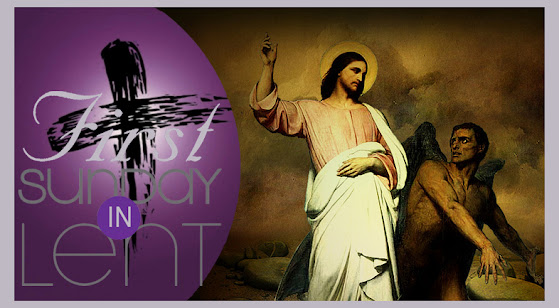|
Let us look at the three central figures of Jesus’ parable. First, the Younger Son – clearly, he has no appreciation or understanding of his father’s love for him. He is in love with himself. "Father, give me the share of the property that will belong to me.' So he divided his property between them. A few days later the younger son gathered all he had and traveled to a distant country, and there he squandered his property in dissolute living. A famine breaks out – he is in desperate condition – finally decides to return home – hoping he might get a servant’s job and thus save himself - he fashions a job application he thinks his father might accept and heads home. "Father, I have sinned against heaven and before you; I am no longer worthy to be called your son; treat me like one of your hired hands." In theological terms we might call this “Imperfect Contrition”. “I’m sorry so I can save myself”. Second, we look at the father – perhaps he has been going every day to the edge of his property, in hopes of seeing his son’s return – and this day he does see him – a retched, miserable mess – coming up the road. With extreme Prodigality he lavishes his son with unconditional love – the day no doubt that the son realizes his father’s true love for him. Now we look at the older son – a son to make a father proud – but he too does not understand that the father loves him. For all these years I have been working like a slave for you, and I have never disobeyed your command; yet you have never given me even a young goat so that I might celebrate with my friends. He fails to understand what his inheritance is all about – that it too has been given to him by a loving father. And he fails to see the younger son as his brother; But when this son of yours came back, who has devoured your property with prostitutes, you killed the fatted calf for him! Might we not see a similarity with some of today’s older, faithful, practicing Catholics, complaining about Pope Francis and his Year of Mercy – his insistence on our need to extend forgiveness to the wayward in today’s Church? Then the father said to him, "Son, you are always with me, and all that is mine is yours. But we had to celebrate and rejoice, because this brother of yours was dead and has come to life; he was lost and has been found.' " |
Voices is a resource for personal prayer and devotion from a Catholic perspective - especially for those beginning the practice of meditative prayer.
v

Friday, 25 March 2022
Fourth Sunday of Lent - 2022
.
Friday, 18 March 2022
Third Sunday of Lent - 2022
|
In this Sunday’s gospel we hear Jesus issuing a rather sobering warning. "If you do not repent, you will all perish as they did." Indeed, Lent is a time to get serious about the condition of our spiritual lives - while we still have time. While the Covid pandemic has created havoc with our efforts to attend church, things are now beginning to normalize and our churches are accessible once again. + + + + + + + Dr. Brant Pitre has an excellent video on today's gospel reading. The LINK. |
.
Friday, 11 March 2022
Second Sunday of Lent - 2022
.
Friday, 4 March 2022
First Sunday of Lent - 2022
.
Subscribe to:
Comments (Atom)
Featured Videos
Featured Videos.




